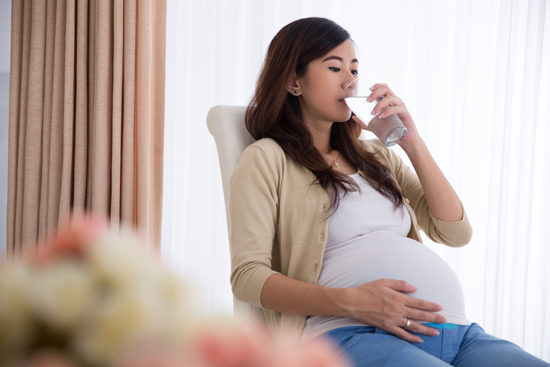Incontinence after childbirth is more common than you think but many new mums are suffering in silence. We talk to Elaine Miller, comedian and physiotherapist, about getting more women to talk about their wee…
There is a perception that continence issues affect the very old, the very young or the infirm. The fear of becoming a smelly old lady is real!
Bladder control is fundamental to our sense of wellbeing.
Loss of control of your bodily functions can affect someone deeply.
A recent study found that becoming incontinent was the second thing most feared by people who were terminally ill, second only to pain.
So, bladder and bowel control seems to be in some way fundamental to our sense of wellbeing.
Comedy can successfully broach tricky subjects; politics, social inequalities, disability, injustice — no topic is beyond satire or ridicule on stage.
And there’s good evidence that humour can be used to change behaviour, so it seemed obvious to try combining work with my hobby of stand up.
It shouldn’t be embarrassing for people to talk about incontinence with a healthcare professional. I understand that it IS, but, I suspect that can be changed.

Periods were embarrassing 30 years ago, and we’re now almost at the stage where purveyors of sanitary products are moving away from the blue liquid…
My advice would be to write down your symptoms and be assured that you are not the first person to be have these problems, not even the first that day.
I am almost impossible to embarrass, most healthcare professionals are. I’d expect that you’d be treated professionally and respectfully.
Yes, a woman who has a vaginal birth with a long second (pushing) stage, a big baby, a significant tear or who needed forceps or suction to deliver the baby will be at more risk.
Women who are hypermobile (particularly supple), overweight or have an uncontrolled cough will also have a higher incidence of incontinence.
They can ask their midwife about pelvic floor exercises and start doing them!

It is difficult to remember, so setting a reminder on a phone or using an app can help.
You could also follow me on twitter – when I tweet, you twitch your twinkle… I’m a very effective nag!
Sadly, there isn’t a pelvic floor fairy, you’re just going to have to do something to remind yourself to do the exercises.
Cut caffeine intake, but, drink lots of liquid – concentrated wee is a bladder irritant so don’t get dehydrated, which can be a challenge if you’re breastfeeding. Your wee should be clear or straw coloured, if it’s yellow, orange or brown then glug some more water.

If you’re leaking after the birth, tell your midwife or GP. There’s lots of help available. Make sure you have your tummy checked after the birth – a gap in the abdominal muscles increases your risk of incontinence.
Equally, don’t return to hard exercise before your muscles are fit enough to cope.
Get assessed before going back to exercise classes, running or anything involving impact. Gentle exercise is great and good for your general health, but, honestly, be cautious with anything which can cause rattling down below.
The main thing is realising that leaking might be common, but, it is never normal and it is certainly not an inevitable consequence of motherhood. Don’t put up with it, you really don’t have to.
Find out more about Elaine and Gusset Grippers on her website.
Read about incontinence in pregnancy and after childbirth including symptoms, how to regain bladder control after birth and exercising your pelvic floor muscles.